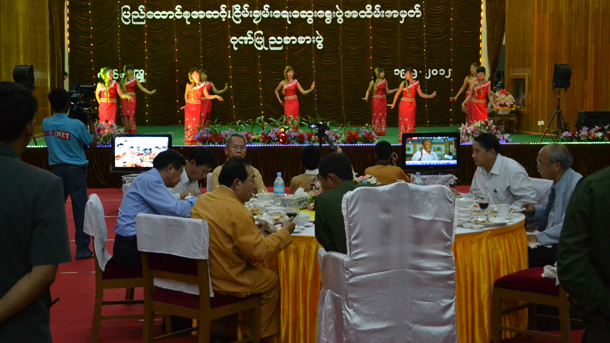Among the 11 points agreed between Burmese government peace negotiators and leaders of the Shan State Army (SSA) last weekend is a landmark decision to resettle all displaced Shan families and civilians in southern Shan State, and perhaps those currently living along the border with Thailand.
The agreement was reached at a Union-level meeting on May 19 between a delegation from Naypyidaw, led by Deputy Commander-in-Chief Gen Soe Win, and leaders of the SSA led by Lt-Gen Yawd Serk.
Sai Murng, the deputy spokesperson for the SSA who also took part in the meeting in Kengtung, southern Shan State, told The Irrawaddy on Wednesday that the SSA and the Burmese government have agreed to conduct needs assessments relating to the resettlement of villagers in Homong sub-township and Mong Htar sub-township in Shan State by the end of May.
The administrative headquarters of the SSA is to be set up in those sub-townships where development projects, including crop plantation and drug eradication, will be monitored, said Sai Murng.
“We [representatives from both sides] will first conduct joint-observation assessments,” he said. “However, no timeframe has been set for the resettlement, which is to cover all families, army personnel and war refugees.”
The SSA spokesman said the organization also plans to initiate development projects and business opportunities for returning families and refugees, especially in agricultural terms.
Of the 2 to 4 million Burmese migrants currently living in Thailand, 500,000 are thought to be ethnic Shan, the vast majority of whom live and work in northern Thailand, according to Burmese and regional labor rights groups.
About 600 Shan refugees live in Kuang Gor camp in Wieng Heng District of Chiang Mai Province, according to Thailand Burma Border Consortium, a humanitarian agency which provides aid to the refugees.
To date, the SSA has opened seven liaison offices in Shan State since it signed a ceasefire agreement with government peace negotiators in January.

















